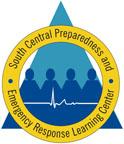
E003: Food Protection
Course Description:
This course contains six modules discussing the fundamental principles of food protection, the application of rules and regulations, food safety management systems, Hazard Analysis and Critical Control Point (HACCP), plan review, integrated pest management and employee training.
Target Audience
Academic Faculty/Staff, Federal Government Employees, State Government Employees, Local Government Employees, Non-Government Employees and Students
Learning Objectives
Food Safety Hazards
- Review principles of microbiological growth & survival
- Give examples of chemical, physical, and biological hazards found in food
- Discuss control measures used at retail to prevent bacterial, viral, and protozoan food borne illness
HACCP Principles
- Identify possible hazards associated with various foods and food preparation practices in retail and food service operations
- Identify control measures available to prevent, reduce, or eliminate the hazards
- Apply the “process approach” to HACCP in these operations to ensure that safe food handling and holding practices are in place to reduce the occurrence of foodborne illness risk factors
- Identify appropriate techniques and methods for applying HACCP principles to inspections
- Identify intervention strategies for controlling risk factors and offer recommendations to operators for immediate and long-term correction
Instructor:

Alan Tart
Regional Retail Food Specialist
USFDA
Alan Tart received a Bachelor of Science degree in Biology with a minor in Chemistry from Berry College in Rome, GA. In 1997, after a short stint of teaching high school biology and physical science, Alan joined the U.S. Food and Drug Administration as a Microbiologist in FDA’s Southeast Regional Laboratory.
In 1999, Alan became a Regional Retail Food Specialist. Alan's responsibilities include performing food safety surveillance and oversight for Special Security Events like the G8 Summit and Olympics and disaster relief efforts such as Hurricanes Katrina, Rita, and Gustav and representing FDA on numerous national food safety and food defense committees
In 2004, Alan was elected by his peers to serve as Co-Team Leader for the FDA National Retail Food Field Team. In this capacity, Alan serves as a member of FDA’s Retail Food Steering Committee that is responsible for formulating and coordinating the Agency’s strategic plan and policy on retail food safety issues.
Available Credit
- 4.00 Participation/CETulane Professional and Continuing Education (PaCE) awards 4.00 hour(s) of credit for completing E003: Food Protection
Price
Required Hardware/software
System Settings
This course is designed to work most effectively if your computer and internet connection meet certain minimal requirements. This course can be accessed using a Windows 10 PC or a Mac with High Sierra1, Mojave, or Catalina. Pop-up blockers should be disabled when viewing the course. Internet Explorer 11 (for Windows 10), or the current version of Google Chrome, Mozilla Firefox, or Apple Safari (for Windows 10 and or Mac) is required. Many of our courses require Java and JavaScript enabled.
Links to External Websites
Links to websites outside this course will open in a new window or tab. Some browsers may minimize the course window. If this occurs, maximize the course window to return to the course.
Adobe Acrobat Reader (for desktops and laptops)
Adobe Acrobat Reader is required to access some documents in this course. If you need to download a free copy of Acrobat Reader, click here.
Internet Connection Speed
A minimum download speed of 1.5 Mbps is recommended for an optimal experience, which is commonly the speed associated with a basic DSL or a cellular/satellite connection. A faster connection, such as cable or fiber service, with further enhance your online experience. A Wi-Fi connection is generally acceptable, but it is dependent upon one of the two services mentioned above. You can check your internet connection speed at http://www.speedtest.net/.

 Facebook
Facebook X
X LinkedIn
LinkedIn Forward
Forward